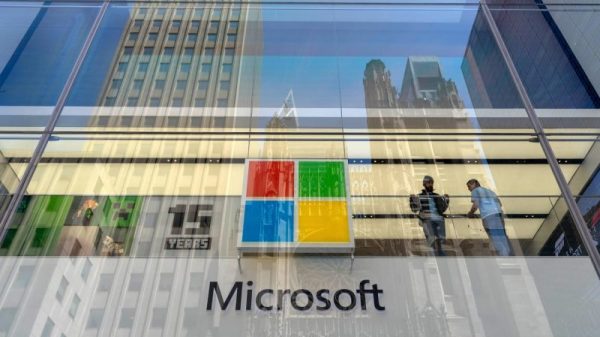After years of investing in self-checkout machines, some major retailers are starting to reverse course.
Dollar General said it has eliminated self-checkout options at about 12,000 locations, a majority of its stores, after it began the process in the first quarter this year. Five Below is working to remove self-checkout entirely in some of its “highest-risk” locations. Target also announced steps to limit or eliminate self-checkout options at some stores this year, and Amazon is pulling its “Just Walk Out” cashierless checkout system from its grocery stores.
The U-turns are occurring at retailers that once touted the upsides of fully self-service stores. As recently as 2022, Dollar General described self-checkout technology’s potential to “enhance the convenience proposition, while enabling our associates to dedicate even more time to serving customers.” The company had tried to test stores with 100% self-checkout kiosks in hundreds of its retail locations.
Five Below said it’s removing self-checkout options in locations it considers at high risk for thefts.Angus Mordant / Bloomberg via Getty Images file
The decisions come amid retailers’ ongoing efforts to tamp down on “shrink,” an industry term for all the ways inventory can get lost, including through error or theft by shoppers or employees.
Some of the companies shifting gears on self-checkout have blamed theft for their moves. In March, Five Below CEO Joel Anderson said the most significant change the company made in testing theft mitigation efforts was to replace self-checkout options with employees. Dollar General CEO Todd Vasos said in May that the company’s goal is to restrict self-checkout to high-traffic, low-theft locations.
Still, the industry’s shoplifting complaints have occasionally raised eyebrows, and at least one retail executive admitted last year to overstating shrink concerns.
Shrink at self-checkouts “can be absolutely intentional from bad actors,” said Claire Tassin, a retail and e-commerce analyst at Morning Consult, “or it could be accidental.”
“I know I’m not the only one who has struggled with a self-checkout machine,” she said. In some cases, though, customers may be purposefully “pretending to scan something and just bagging it anyway.”
People are always complaining about the machines’ being difficult to use, or loud, or just challenging in some way.
Morning Consult ANalyst Claire Tassin
According to a LendingTree survey last year, 15% of self-checkout users admitted to stealing while they were using the machines. About 41% of consumers said they almost always use self-checkout when it’s available, but 21% said the option feels like they’re performing “free labor,” and 14% saw it as taking a job from a would-be cashier.
Representatives for Dollar General and Five Below didn’t immediately comment.
Tassin said some retailers may also be looking to improve the customer experience. “People are always complaining about the machines’ being difficult to use or loud or just challenging in some way,” she said.
That’s how Jerome Osei described them recently at a Morton Williams supermarket in New York City. “I have to wait for someone to come in and fix it, and it’s just a waste of time,” he said, opting for the cashier checkout, instead.
Other shoppers there had more favorable views. “Super fast, easy, convenient” was fellow shopper Jessi Clayton’s review. “It’s a great option to have, especially when you’re in a hurry.”
Consumers who’ve fretted about self-checkouts’ impact on jobs might be cheered by the recent rollbacks. Five Below and Dollar General said they’re reinvesting in workers as part of their changes.
“It tells us that it is more profitable for the retailer to pay employees to manage checkout,” Tassin said. “And they’re of course going to be better at it than the average untrained consumer than it is to support the machines, where they’re probably getting less-than-accurate checkouts from consumers.”
But despite the shift back toward human cashiers, she doesn’t expect shoppers to have to pay more. “Retailers know consumers are pretty pressed for prices. So I don’t think this will make a massive, meaningful difference in consumer prices” at the moment, she said.
While some stores are moving away from self-checkout, the option doesn’t look like it’s going away any time soon. An estimated 44% of transactions at grocery stores took place in self-checkout lanes last year, according to the Food Industry Association, up from 29% in 2022.


































